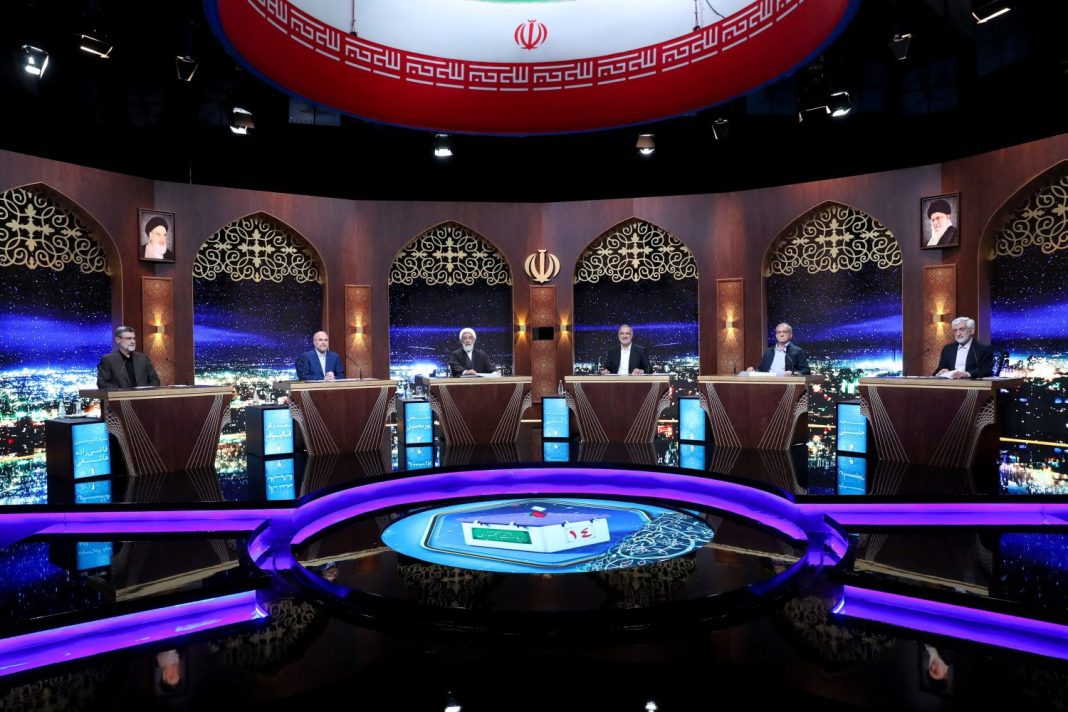The debate focused on foreign policy, and social, economic, and cultural issues, although discussions diverged from the main topics at times.
Veteran parliamentarian and the reformist camp’s sole candidate, Massoud Pezeshkian, zeroed in on removing the crippling Western-imposed sanctions and finding common grounds at home as the remedies for the pile of problems that continue to plague the country.
Unfulfilled promises, inefficiency, economic hardships, corruption, and mismanagement were some of the key words Parliament Speaker Mohammad Baqer Qalibaf promised he would tackle in case he wins the polls.
Principlist candidate Amir-Hossein Ghazizadeh Hashemi once again reiterated his campaign promise that he would follow in the footsteps of late President Ebrahim Raisi who died in a helicopter crash last month and left the top executive post vacant.
Former interior and justice minister Mostafa Pourmohammadi blamed mainly the “failing administrative system and dysfunctional bureaucracy” for a large chunk of the existing problems in the country.
Tehran Mayor Alireza Zakani, who is widely believed to be a stalking horse, unrelentingly targeted Pezeshkian for most of the debate and argued the former reformist and moderate presidents who have endorsed him are responsible for the current failures Iran is grappling with at home and on the international stage.
Extreme-right candidate Saeed Jalili claimed Iran can economically outperform many countries, including China, through efficient planning and by removing intermediary companies.
According to the Constitution, candidates should stop their campaigns 24 hours before polls open on Friday at 08:00 am local time (04:30 GMT).
Pezeshkian is leading the polls and Ghalibaf and Jalili are second and third respectively, opinion polls show.
